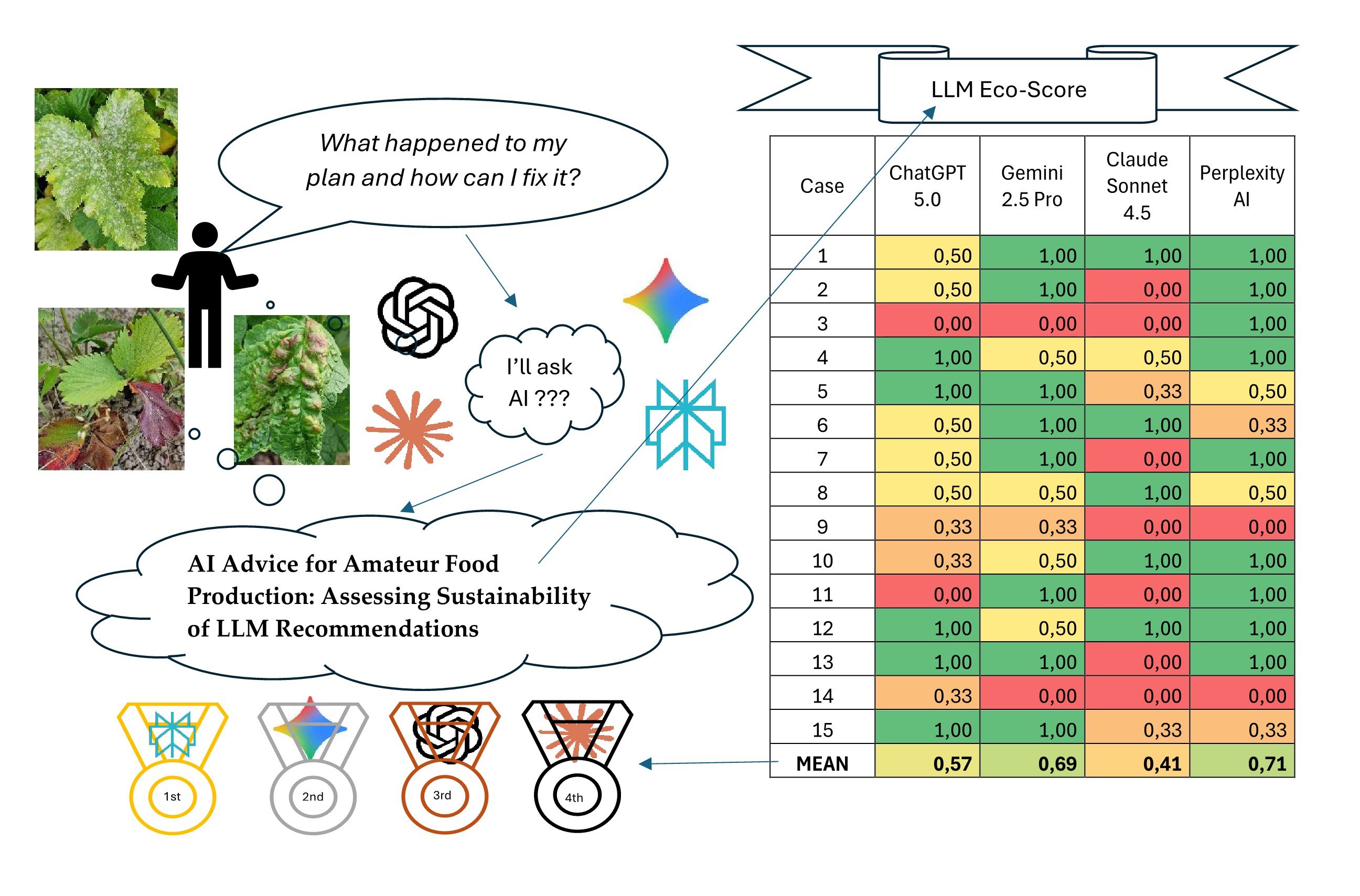AI Advice for Amateur Food Production: Assessing Sustainability of LLM Recommendations
Abstract
Share and Cite
Krzyżewska, A. AI Advice for Amateur Food Production: Assessing Sustainability of LLM Recommendations. Sustainability 2025, 17, 10466. https://doi.org/10.3390/su172310466
Krzyżewska A. AI Advice for Amateur Food Production: Assessing Sustainability of LLM Recommendations. Sustainability. 2025; 17(23):10466. https://doi.org/10.3390/su172310466
Chicago/Turabian StyleKrzyżewska, Agnieszka. 2025. "AI Advice for Amateur Food Production: Assessing Sustainability of LLM Recommendations" Sustainability 17, no. 23: 10466. https://doi.org/10.3390/su172310466
APA StyleKrzyżewska, A. (2025). AI Advice for Amateur Food Production: Assessing Sustainability of LLM Recommendations. Sustainability, 17(23), 10466. https://doi.org/10.3390/su172310466








